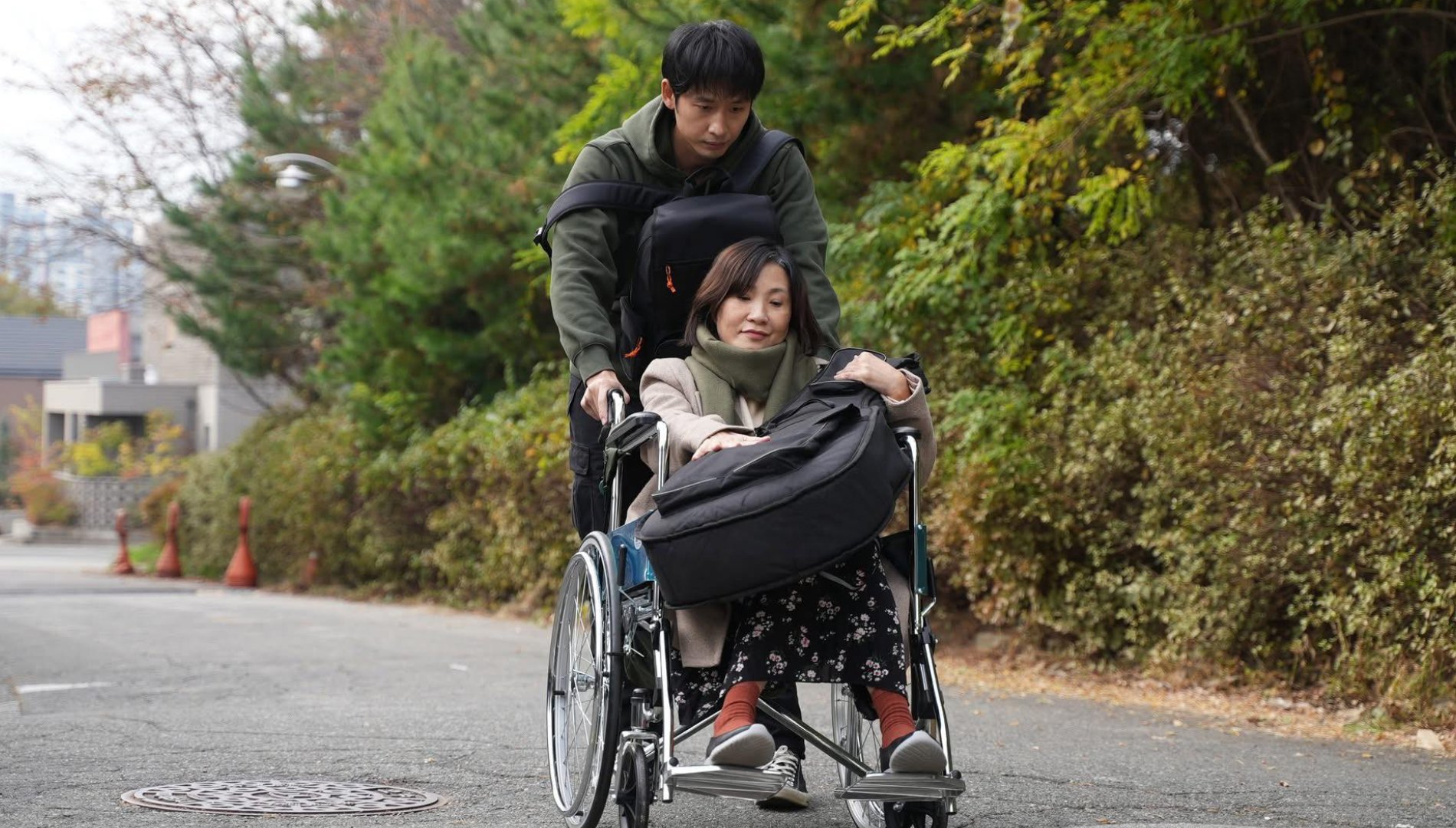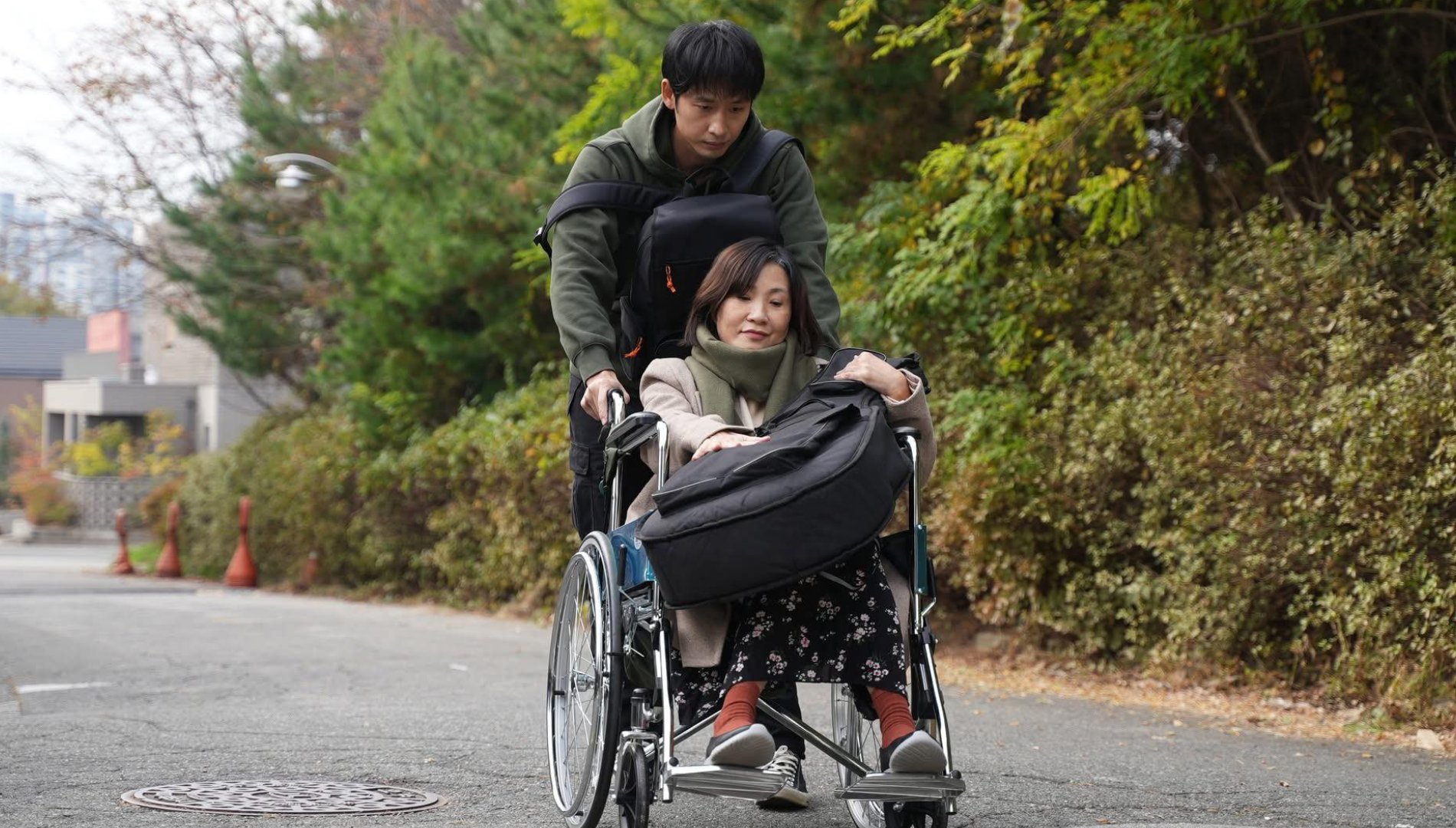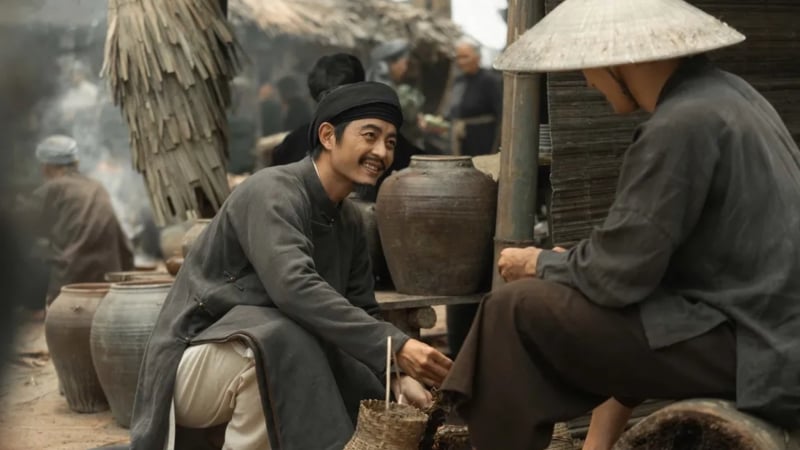Amidst the Vietnamese film industry's relentless search for profound stories that address core social issues, the Vietnamese-Korean collaborative project "Abandoning My Mother" has officially released its poster, immediately making a strong impression and evoking a series of reflections in the public. The moving image on the poster, with Tuan Tran carrying Hong Dao on his back, both smiling but their eyes gazing into the distance, has become a striking and meaningful highlight. The mother's smile is radiant and carefree like a child's, while the daughter's smile is gentle and pensive, seemingly concealing deep thoughts and inner turmoil.
Related articles
The central message depicted on the poster is: "What happens when love becomes a burden?" – a direct and challenging question. Combined with the symbolic image of carrying one's mother on one's back, the film not only raises issues of responsibility and sacrifice between generations in modern families, but also touches upon a sensitive emotional area rarely explored in Vietnamese cinema: Does familial love have limits if love becomes an unbearable burden?
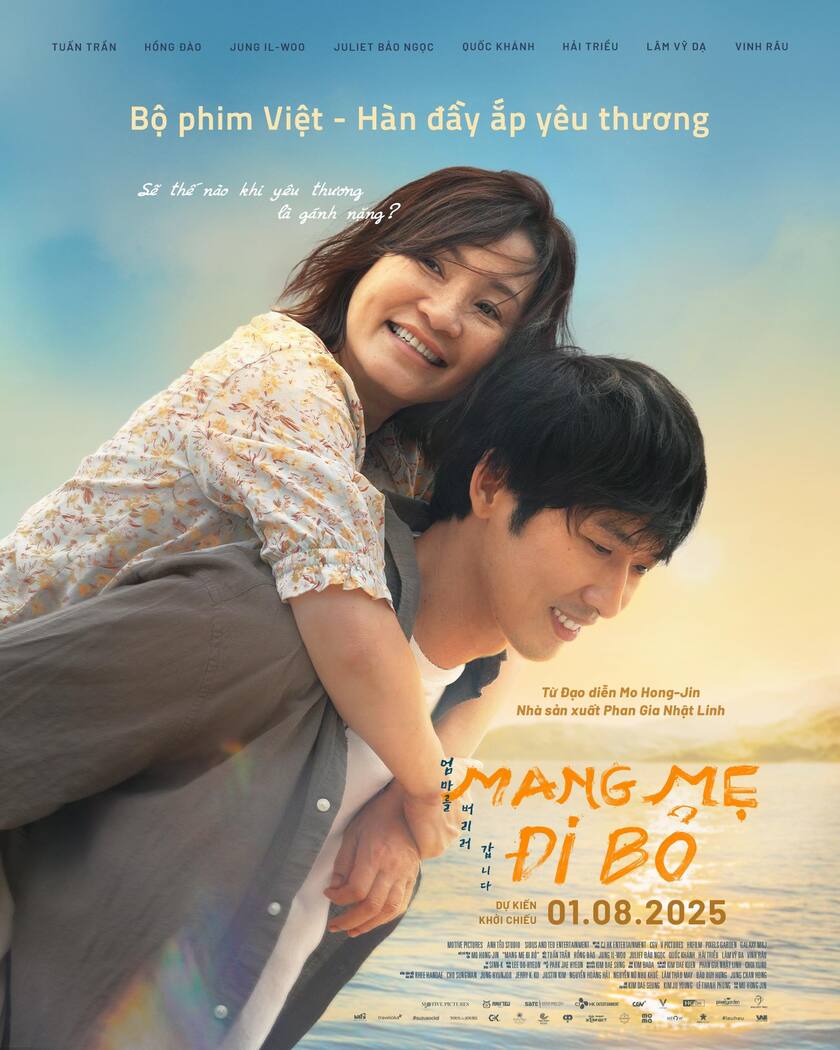
Tuan Tran carried Hong Dao on his back, both smiling and gazing into the distance.
Bringing Vietnamese family stories to the world.
Sharing his vision for the content, director Mo Hong-jin, the man behind this project, expressed his grand ambition: "I want to create a story about a Vietnamese family that the whole world will be watching." He emphasized that the film focuses on portraying motherhood, family affection, and humanistic depth – universal values that take on a unique character when placed within the context of Vietnamese culture.
The director expressed particular appreciation for Vietnamese culture, where filial piety and family ties are always paramount. Therefore, he wanted to pose a question to the audience: when everything is pushed to the limit, how strong can love, filial devotion, and the protection of family be to enable the characters to make their own decisions and face the breathtaking challenges of family bonds?
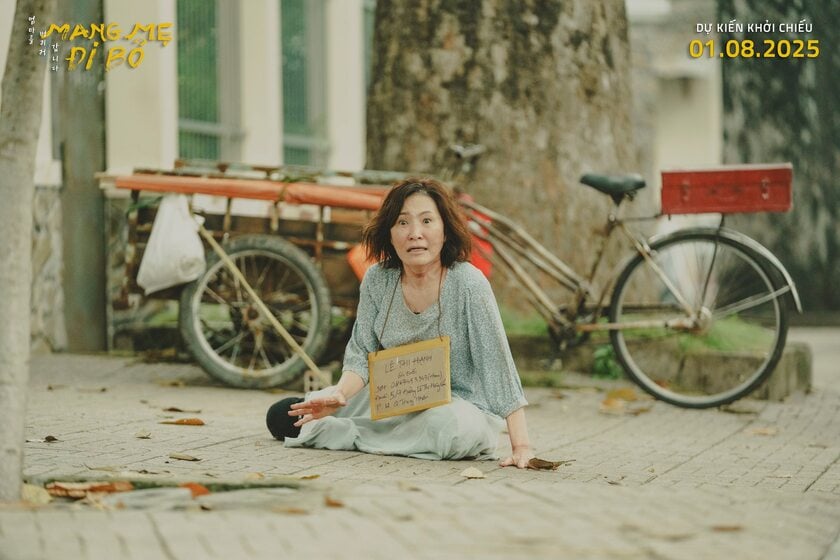
This work is not only an emotional symphony about motherhood, but also demonstrates a significant shift in the wave of international co-production cinema.
Mo Hong-jin also emphasized that although Vietnam and Korea are geographically and linguistically different, they share a common sense of kindness and warmth among their people. For him, national boundaries are not an important factor in the film. What he cares most about is highlighting the genuine feelings between people, something that any audience member can feel, regardless of their origin. This is a cross-border family story, relatable to audiences in many countries.
The character Hoan, played by Tuan Tran, is not only a prime example of a filial Vietnamese son who always cares for his elderly parents, but also a role model for a generation racing against life, struggling with mental illnesses and the neglect of society. Inspired by the true story of a young man struggling to care for his mother with Alzheimer's disease, the script by director and screenwriter Mo Hong-jin skillfully guides viewers from feelings of pity to empathy, from compassion to profound reflection.
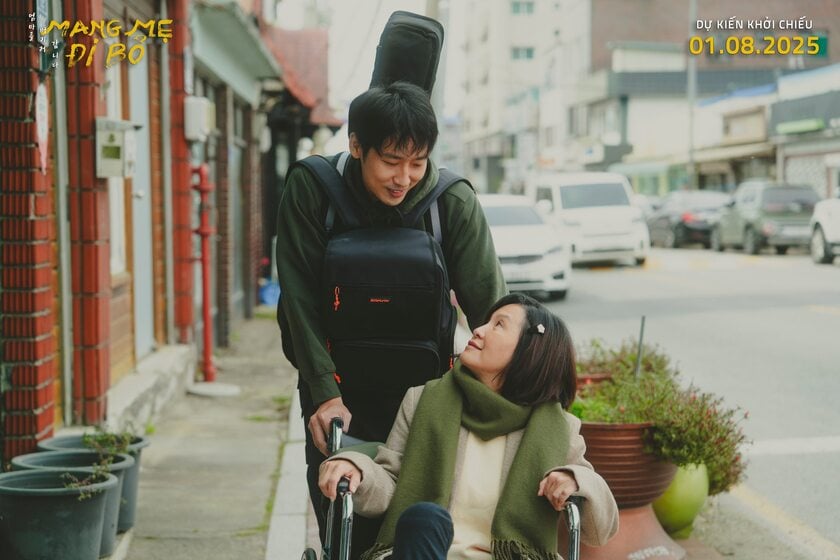
Sharing his vision for the film, the director stated that it focuses on portraying motherly love, family affection, and humanistic depth – universal values that are nonetheless unique when placed within the context of Vietnam.
Lines like "take Mom away and abandon her" are not just the title of the film, but also a breathtaking test of familial love, placing the child before the harsh question of responsibility and affection. Hong Dao, in the role of Mrs. Hanh, promises to deliver a diverse range of expressions, while Tuan Tran surprises with a series of images showcasing complex inner emotions, demonstrating maturity in his acting.
Mr. Phan Gia Nhat Linh, the producer representing the Vietnamese team, said this is the first film where both Vietnam and South Korea share equally in terms of investment, creative input, and the entire production process. “Although this film has an original Korean script and is directed by a Korean director, we always wanted the film to retain Vietnamese cultural elements,” he shared. “The director and I talked extensively about the script, adjusting even the smallest details to suit the habits and lives of Vietnamese people.”
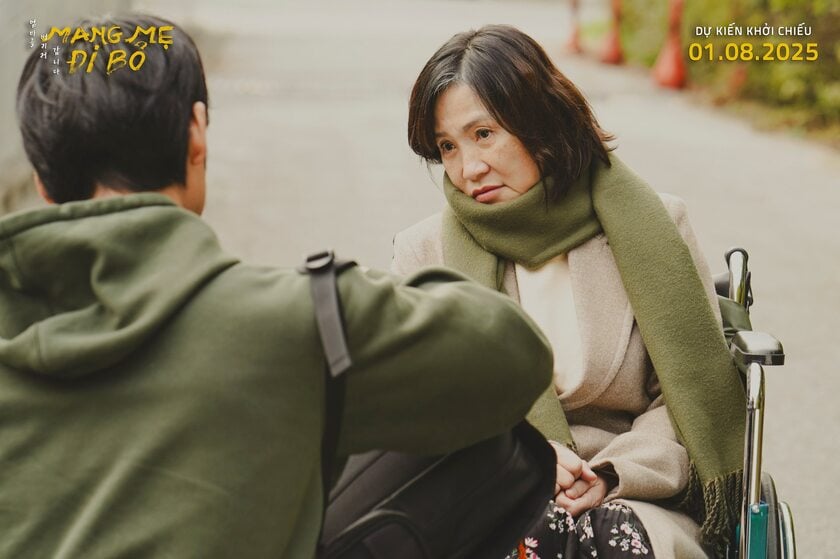
Faced with the challenge of portraying the tragedy of Alzheimer's patients on the big screen, actress Hong Dao meticulously researched the character by asking those around her who had relatives suffering from Alzheimer's disease.
Besides the deeply emotional portrayal of motherhood, "Abandoning Mom" also showcases a unique Vietnamese essence by cleverly incorporating humorous and healing elements through Hoan's close group of friends. Each with their own personality and style, they create an interesting contrast to the somber atmosphere of the emotional mother-child story. Actress Lam Vy Da, playing Chau, Hoan's friend, humorously shared: "The role of Chau seems tailor-made for me. Along with Quoc Khanh, Hai Trieu, and Vinh Rau, Hoan's group of friends serves as a healing force in the film. If there are scenes where Hoan cries too much, they send us in to heal her."
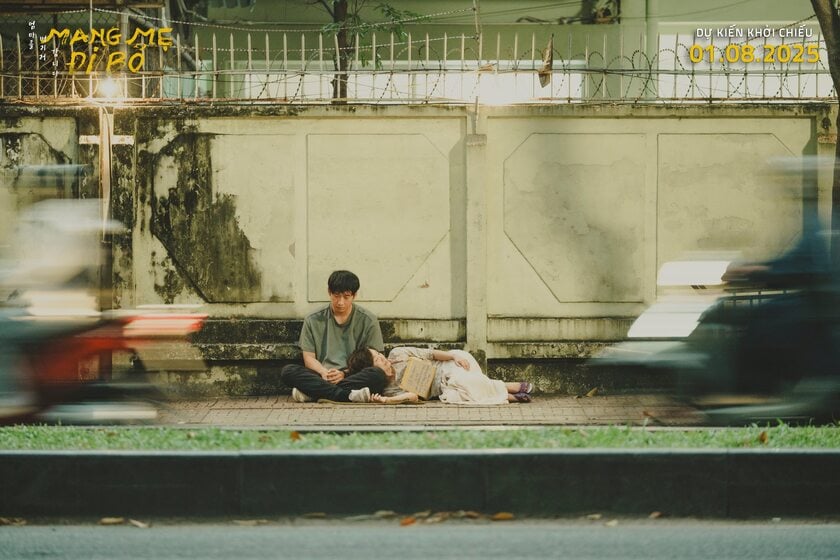
Every day in Hoan's life is a struggle between love and responsibility, between choosing to give her mother a better life or selfishly keeping her by her side through a series of hardships.
Unlike many Vietnamese films that favor fast-paced narratives and easy-to-understand dialogue, "Abandoning My Mother" strongly reflects the spirit of South Korean cinema in the post-"healing" era – where stories are told through atmosphere and emotion rather than action or dramatic plot twists. Director Mo Hong-jin's presence in Vietnam at the film's announcement, along with information about the three-year development process, demonstrates a serious approach, not just a typical "cultural exchange" collaboration.
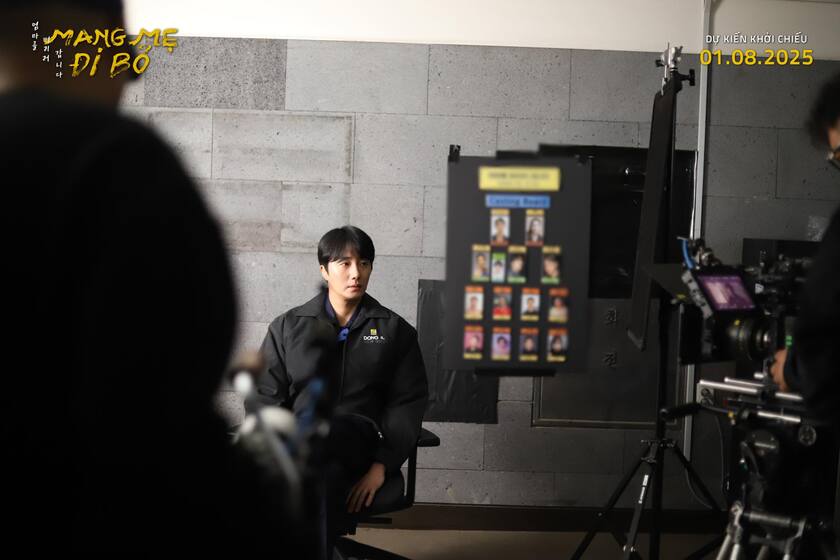
Notably, the event features South Korean actor Jung Il-woo, who previously appeared in the popular series "High Kick!"
Each frame in the film is not intended to be aesthetically pleasing in the conventional way, but rather to evoke the viewer's emotions from their very core. Static camera angles, dim lighting, confined spaces – all seem to deliberately "suffocate" the viewer along with the characters' emotions, creating a sense of tension and repression.
Nevertheless, there are still bright, optimistic rays of light shining through the characters' journey forward. This visual language isn't new in Korean cinema, but it remains a challenging choice for most Vietnamese audiences, who are accustomed to faster-paced films. The director doesn't hide his intention of not needing the film to be immediately captivating, but rather allowing the pent-up emotions to build up gradually, like cracks in a family relationship: small, simmering, and unspoken, but not overly melodramatic or tragic.
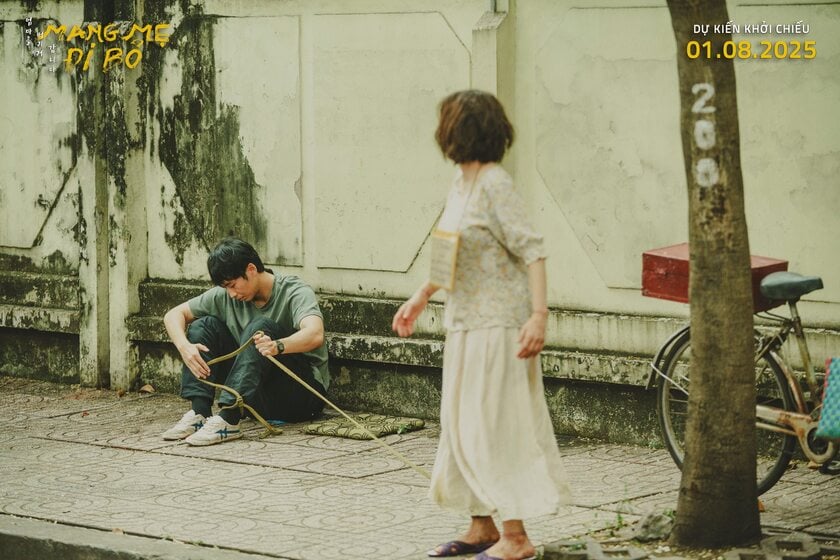
Ultimately, Hoan was forced to make a heartbreaking decision: to abandon her mother to her older brother in South Korea, a man she had never met.
Looking at the cast, including Hong Dao, Tuan Tran, Lam Vy Da, Hai Trieu, Vinh Rau, etc., it's easy to think "Bringing Mother Away" is an entertaining film with family elements, enough humor and emotion. But this film forces the actors to break free from their comfort zones and familiar images, to transform into people who are nothing special, even ordinary, like those struggling with life out there.
The film touches on an emotional chord that many Vietnamese people still avoid: the feeling of "indebtedness" in family relationships, the fear of becoming a burden to others, and the weariness that no one dares to express. For the generation of viewers over 30 – those caught between the two burdens of responsibility (children and elderly parents) – the film has the potential to create a significant impact if it is marketed correctly: without sensational headlines or chasing trends, but allowing it to permeate through authentic, emotionally resonant stories in theaters.
"Abandoning My Mother" promises to be a noteworthy work, not only for its story, but also for the way it dares to raise difficult questions, forcing viewers to confront themselves and their most sacred relationships.

 VI
VI EN
EN



